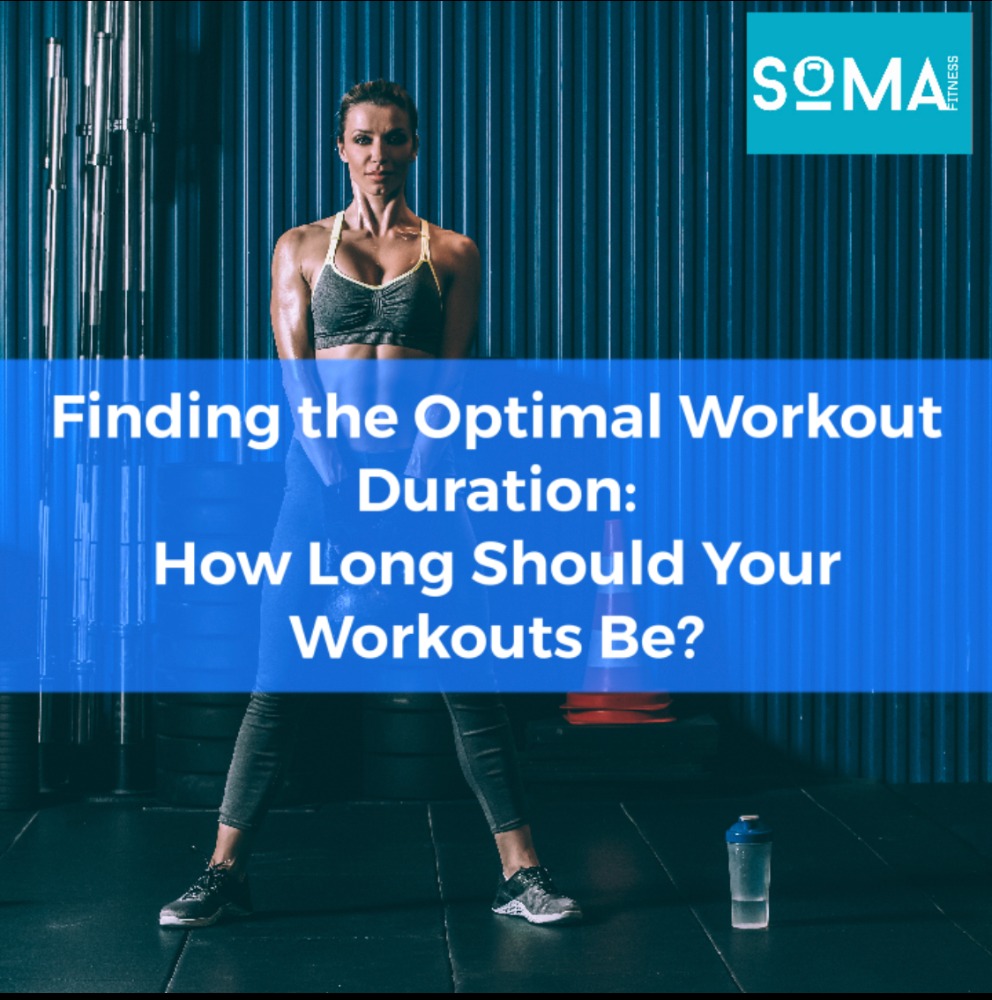Finding the Optimal Workout Duration: How Long Should Your Workouts Be?

Striking the right balance between an effective workout and a time-efficient routine is essential. To shed light on this topic, we will take a look at various studies conducted on workout durations and provide a summary of the main takeaways. Remember, personal preferences and goals play a significant role, but understanding the scientific evidence can help guide your decision-making process and also give you less room for excuses if you are not currently exercises and taking charge of your health.
Study 1: “The Effect of Workout Duration on Strength Gains”
In a study published in the Journal of Strength and Conditioning Research, researchers investigated the impact of different workout durations on strength gains. They divided participants into three groups: one group performed 30-minute workouts, another performed 60-minute workouts, and the third group had 90-minute workouts. The study concluded that there were no significant differences in strength gains among the three groups. This suggests that workout duration alone may not be the key factor for strength development.
Study 2: “Effects of Workout Duration on Cardiovascular Fitness”
A research team at the University of California conducted a study to examine the effects of workout duration on cardiovascular fitness. They assigned participants to two groups: one group performed 30-minute moderate-intensity workouts, and the other group engaged in 60-minute moderate-intensity workouts. The study revealed that both groups experienced significant improvements in cardiovascular fitness. While the 60-minute group demonstrated slightly greater gains, the results indicated that shorter workouts can still yield substantial cardiovascular benefits.
Study 3: “Optimal Workout Duration for Fat Loss”
In a study published in the International Journal of Obesity, researchers analysed the impact of different workout durations on fat loss. Participants were divided into three groups: one group performed 20-minute high-intensity interval training (HIIT) workouts, another group engaged in 40-minute HIIT workouts, and the third group performed 60-minute steady-state cardio workouts. The findings showed that all three groups experienced significant reductions in body fat percentage, with no significant differences between the durations. This suggests that the intensity of the workout may play a more significant role in fat loss than the duration alone.
Study 4: “The Impact of Prolonged Exercise on Hormonal Changes”
A study published in the Journal of Endocrinology and Metabolism examined the effects of prolonged exercise on hormonal changes. Male participants performed a high-intensity resistance workout lasting 90 minutes. The study found that after the workout, there was a significant decline in serum testosterone levels and an increase in cortisol levels. These hormonal changes indicated a temporary state of increased catabolism, suggesting that longer workouts may have a negative impact on anabolic hormone balance.
Study 5: “Effects of Different Workout Durations on Testosterone and Cortisol Response”
A research team conducted a study published in the European Journal of Applied Physiology to investigate the effects of different workout durations on testosterone and cortisol response. Participants performed resistance exercises at varying durations: 30 minutes, 60 minutes, and 90 minutes. The study revealed that the 30-minute workout resulted in a significant increase in testosterone levels without a significant rise in cortisol levels. The 90-minute workout led to a decline in testosterone levels and an increase in cortisol levels. These findings suggest that longer workouts may disrupt the balance of anabolic and catabolic hormones.
Main Takeaways:
- Workout duration alone is not the sole determinant of strength gains. Focus on intensity, proper form, and progressive overload for optimal results.
- Both shorter and longer workouts can improve cardiovascular fitness. The key is to maintain a consistent level of intensity.
- Fat loss can be achieved with various workout durations. High-intensity exercises, such as HIIT, may be more effective for fat loss than steady-state cardio.
- Prolonged exercise sessions, especially high-intensity workouts lasting 90 minutes or more, can lead to a decline in serum testosterone levels.
- Longer workouts may result in an increase in cortisol levels, indicating a potential shift towards a catabolic state.
- Shorter workout durations, such as 30 minutes, may promote a favorable hormonal response with an increase in testosterone levels and minimal changes in cortisol levels.
Determining the ideal workout duration depends on individual preferences, goals, and available time. This also eliminates the excuse of ‘ I don’t have time to exercise’ as we all have 30 mins in our day. While the studies presented above provide insights into the effects of different workout durations, it is important to consider other factors such as exercise intensity, consistency, and recovery. A well-rounded fitness routine that incorporates a mix of strength training, cardiovascular exercises, and flexibility work is generally recommended. Ultimately, the best workout duration is the one that you can keep consistent, motivated, engaged, and helps you achieve your fitness goals.

Leave a Comment
(0 Comments)